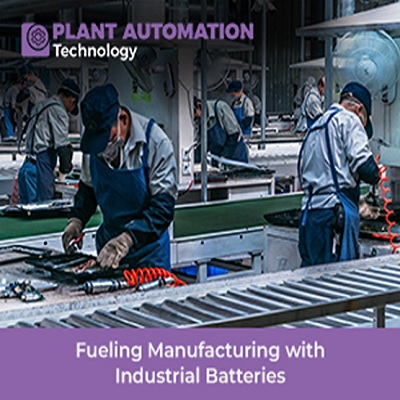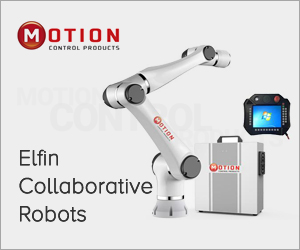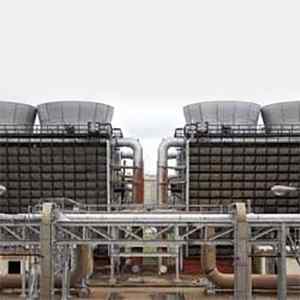Fueling Manufacturing with Industrial Batteries

Introduction
In recent years, there has been a significant shift in the manufacturing industry towards adopting cleaner and more sustainable energy sources. One promising solution that has gained traction is the use of industrial batteries to power manufacturing processes. Industrial batteries offer numerous advantages, including improved efficiency, reduced carbon emissions, and enhanced flexibility. This article explores the potential of industrial batteries for fueling manufacturing operations and highlights the benefits they bring to the table.
Improved Efficiency: Powering Manufacturing with Industrial Batteries
Fueling manufacturing with Industrial Batteries leads to a significant improvement in energy efficiency within the manufacturing sector. Traditional manufacturing facilities often rely on fossil fuel-based generators, which are notorious for their inefficiency and high energy consumption. In contrast, industrial batteries offer a more efficient energy storage and delivery system.
Industrial batteries can store excess electricity during periods of low demand or renewable energy generation. This stored energy can be utilized during peak manufacturing hours, allowing factories to reduce their reliance on the grid and conventional energy sources. By optimizing energy usage, industrial batteries help manufacturers achieve enhanced efficiency, reduce waste, and lower overall energy costs.
Reduced Carbon Emissions: A Green Solution to Manufacturing
Manufacturing contributes to greenhouse gas emissions. However, by integrating industrial batteries into their operations, manufacturers can reduce their carbon footprint. Industrial batteries enable renewable energy sources such as solar or wind power, minimizing fossil fuel dependence.
| Also Read: Empowering Automation: The Role of Storage Batteries in Industrial Efficiency |
Enhanced Flexibility: Adapting to a Changing Manufacturing Landscape
Flexibility is crucial for modern manufacturing facilities to remain competitive in a rapidly changing market. Industrial batteries offer unprecedented flexibility by providing on-site energy storage solutions. With battery storage, manufacturers can have a backup power source to ensure uninterrupted operations during grid outages or fluctuations.
Industrial batteries allow manufacturers to participate in demand response programs. These programs incentivize factories to reduce energy consumption during peak periods in exchange for financial rewards. By drawing power from their batteries instead of the grid during high-demand periods, manufacturers can contribute to grid stability while benefiting financially.
Furthermore, industrial batteries enable manufacturers to optimize energy usage based on real-time data. By integrating battery management systems with intelligent energy monitoring, manufacturers can make data-driven decisions to enhance efficiency and productivity. The ability to store and deploy energy as needed provides manufacturers with the agility and adaptability required in today's dynamic business landscape.
Cost Savings: A Financial Advantage for Manufacturers
While industrial batteries may seem substantial, they offer long-term cost savings for manufacturers. By relying on battery storage instead of purchasing electricity from the grid during peak hours, manufacturers can reduce energy costs significantly. Demand response programs can further save through financial incentives.
Additionally, industrial batteries can help manufacturers avoid costly downtime due to power outages. Unplanned downtime can lead to missed production targets, lost revenue, and damage to a company's reputation. By having a reliable backup power source, manufacturers can ensure uninterrupted operations and mitigate the financial risks associated with power disruptions.
Grid Independence and Resilience
Industrial batteries offer manufacturing facilities grid independence and resilience. By relying on battery storage systems, manufacturers can reduce their dependence on the electrical grid. This is particularly advantageous in regions with unreliable or inadequate grid infrastructure.
In the event of power outages or disruptions, industrial batteries provide a reliable backup power source, ensuring continuous operations and minimizing productivity losses. By having control over their own energy supply, manufacturers can safeguard themselves against unforeseen circumstances and maintain a competitive edge in the market.
Demand Management and Peak Shaving
Demand management and peak shaving are vital strategies for manufacturers to optimize energy consumption and reduce electricity costs. Industrial batteries play a crucial role in these strategies by allowing manufacturers to store excess energy during low-demand periods. They deploy them during peak hours.
By implementing demand management techniques, manufacturers can strategically shift their energy usage patterns, avoiding peak demand charges and reducing electricity costs. Industrial batteries enable manufacturers to smooth out energy consumption, ensuring a more efficient and cost-effective operation.
Integration with Renewable Energy Sources
Industrial batteries complement renewable energy sources like solar and wind power perfectly. Renewable energy generation's intermittent nature can be solved by combining it with battery storage devices. Renewable energy generated during peak periods can be stored in industrial batteries for later use.
This combination of renewable energy and industrial batteries maximizes clean energy utilization and improves manufacturing operations’ reliability and stability.
Manufacturers may improve their environmental credentials and contribute to a better future by lowering their dependency on fossil fuels and embracing renewables.
Lifecycle Considerations and sustainability
When evaluating industrial batteries, it is essential to consider their lifecycle and sustainability. Batteries have environmental implications.
Manufacturers should aim to source batteries from manufacturers committed to sustainable practices and responsible raw materials sourcing. Additionally, recycling and proper disposal mechanisms should be in place to ensure battery waste management.
As battery technology evolves, research and development efforts are focused on improving industrial batteries' efficiency, lifespan, and recyclability. By prioritizing sustainability throughout the battery lifecycle, manufacturers can align their operations with environmental goals and create a positive impact.
Government Incentives and Support
Governments worldwide recognize the potential of industrial batteries for transforming the manufacturing sector and reducing carbon emissions. As a result, there are various financial incentives, grants, and policy frameworks in place to encourage industrial battery adoption.
Manufacturers can use these incentives to offset battery storage systems' initial investment costs. Additionally, government support often includes technical assistance and guidance on best practices, helping manufacturers navigate the transition to battery-powered manufacturing.
By leveraging government support and incentives, manufacturers can accelerate industrial battery adoption. This will enable them to gain a competitive edge and contribute to a more sustainable industrial landscape.
Conclusion
The manufacturing industry is undergoing a significant transformation, driven by the need for cleaner and more sustainable energy solutions. Industrial batteries offer a promising avenue to fuel manufacturing operations while addressing environmental concerns. Through improved efficiency, reduced carbon emissions, enhanced flexibility, and cost savings, industrial batteries empower manufacturers to embrace a greener future.
As technology advances and battery storage costs decline, industrial batteries have become an increasingly integral part of the manufacturing landscape. By investing in these innovative energy solutions, manufacturers can achieve production goals while minimizing environmental impact. The era of fueling manufacturing with industrial batteries is upon us, and it brings many benefits for both businesses and the planet.







